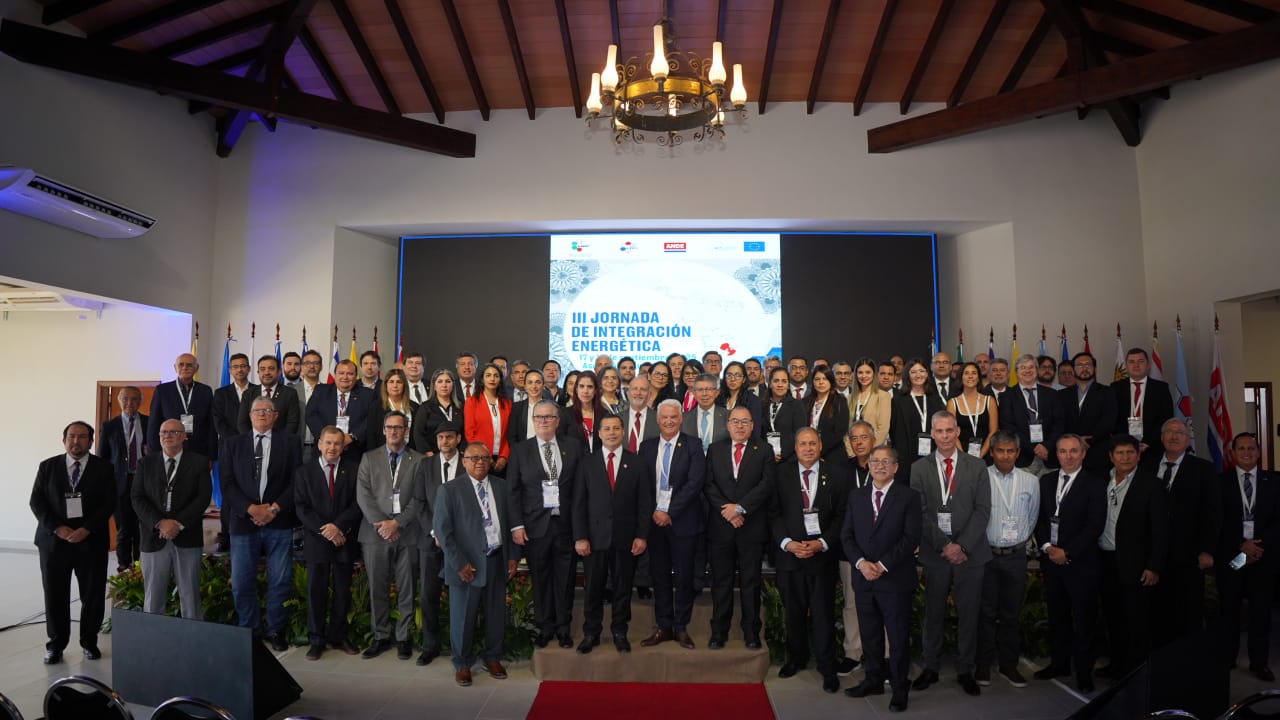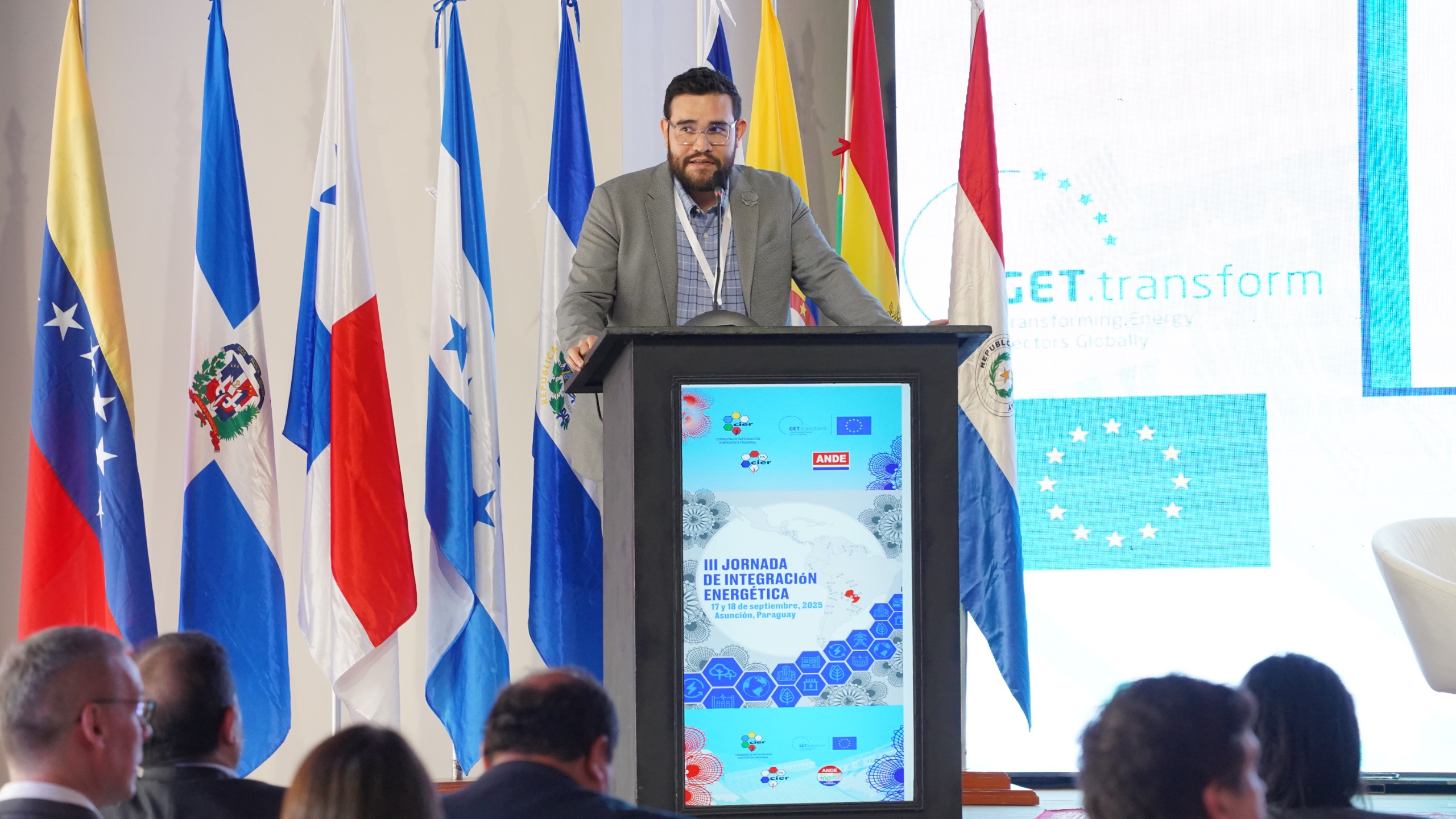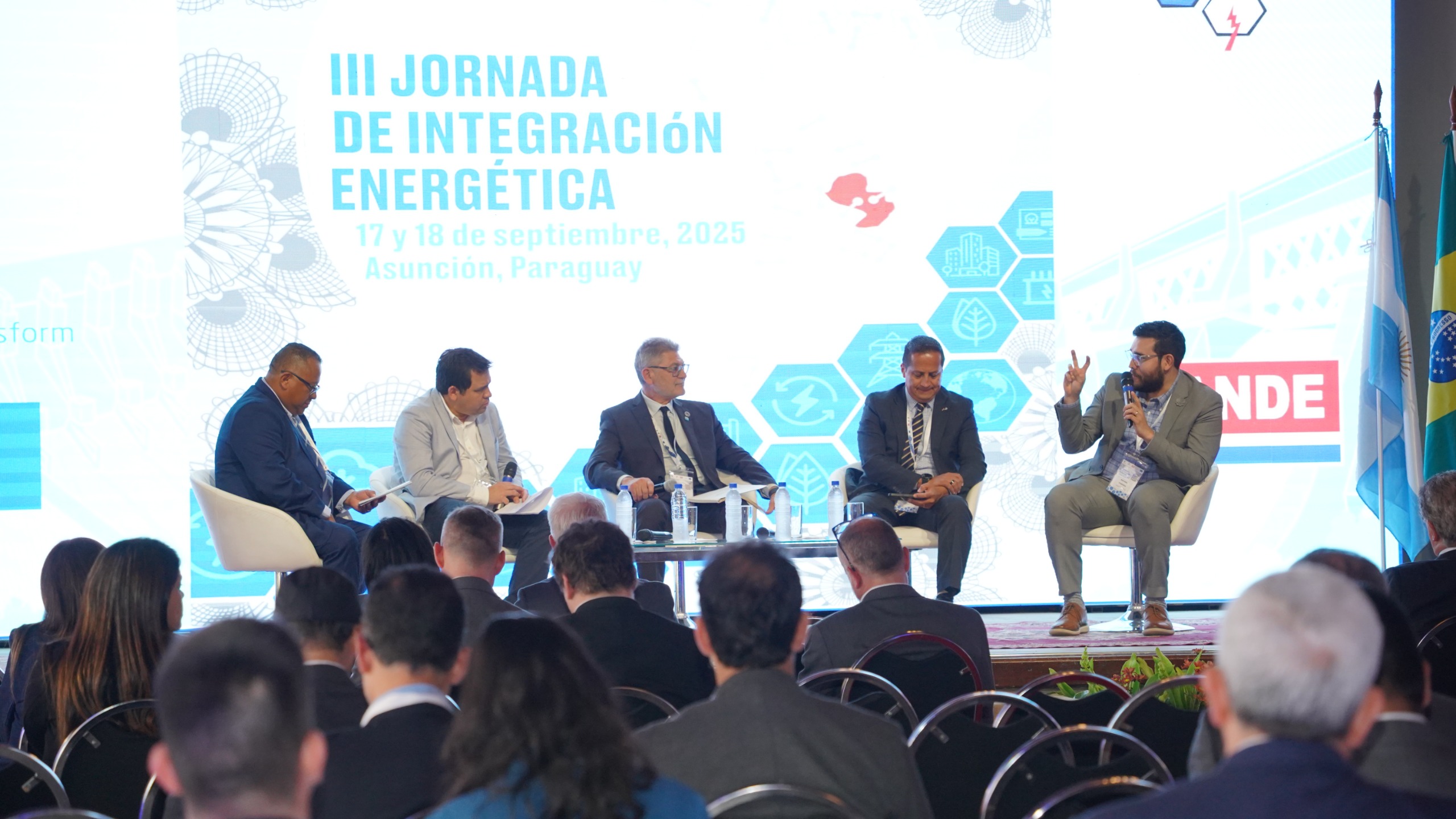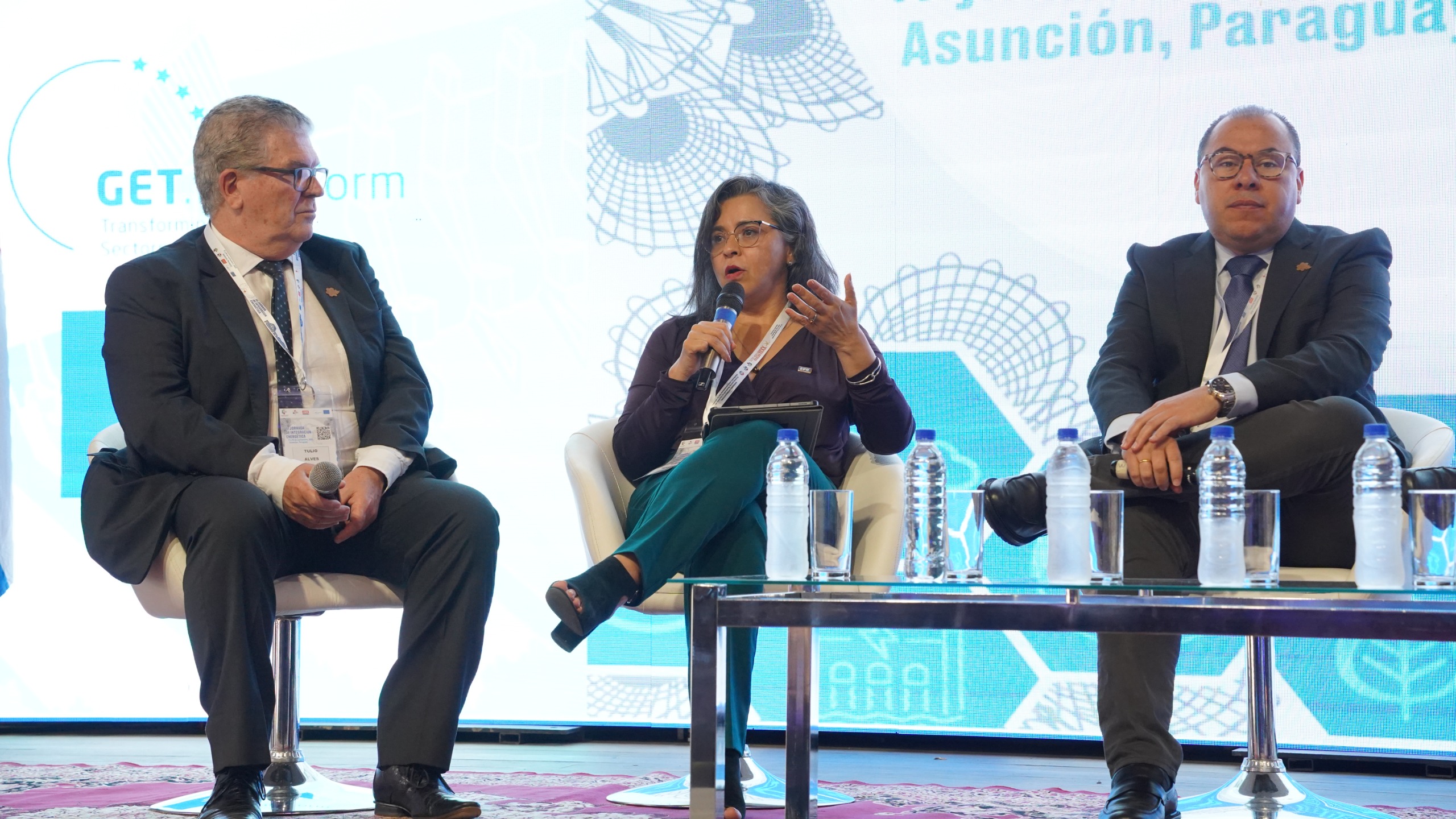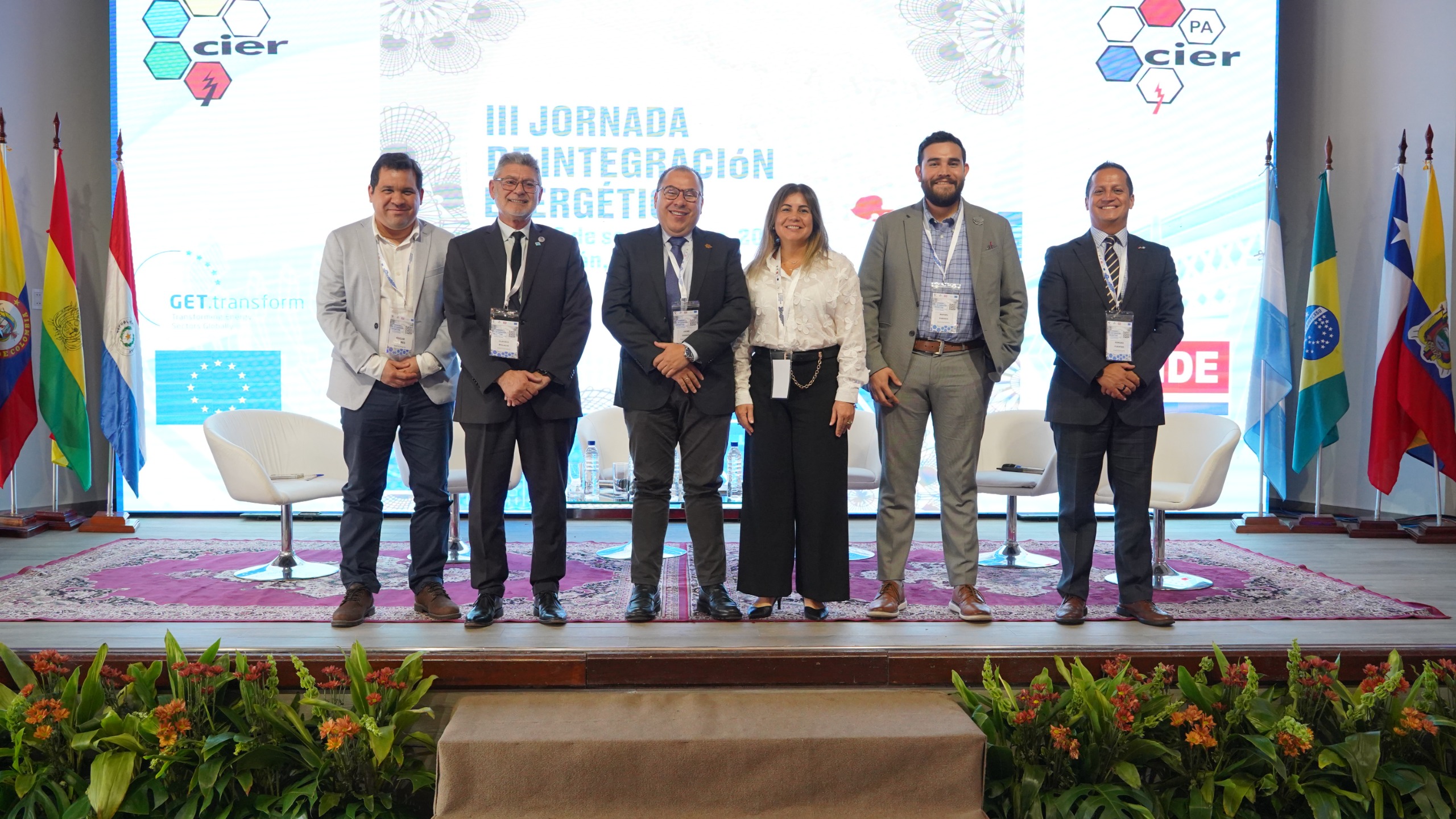Last week, the “III Jornada de Integración Energética”, the third Regional Energy Integration Conference took place in Asunción, Paraguay. The event was organised by the Regional Energy Integration Commission (CIER) in partnership with the National Electricity Administration of Paraguay (ANDE), PACIER (the Paraguay chapter of CIER) and GET.transform.
The gathering came at a crucial time as countries in Latin America and the Caribbean work to advance cross border energy integration in support of sustainable development and the Global Gateway agenda.
More than 80 individuals attended including leaders from the electricity sector of 13 countries: Argentina, Bolivia, Brazil, Chile, Colombia, Costa Rica, El Salvador, Guatemala, Honduras, Panama, Peru, the Dominican Republic and Paraguay as the host. International organisations such as the European Union Delegation, ARIAE, EPRI, IADB, and NEWES were also in attendance.
The opening ceremony was led by Mr. Mauricio David Bejarano Martí, Vice Minister of Mines and Energy of Paraguay together with representatives from CIER, ANDE, PACIER and GET.transform.
Beyond co-organising, GET.transform contributed as part of the panel on international organisations alongside CIER and ARIAE. The programme also facilitated the participation of the keynote speaker Dr. Jorge Vasconcelos, who shared learnings from his work on energy systems integration in Europe done with the Florence School of Regulation and NEWES.
A central element of the event were the interactive workshops led by Rafael Parada from GET.transform’s Central America team. These sessions engaged all participants in reflecting on achievements and roadblocks to regional integration and in identifying concrete actions to move forward. On the first day, discussions were focused on subregional systems (SIEPAC, SINEA and SIESUR) and on Paraguay’s role in deepening the integration agenda. On the second day, the focus shifted to thematic issues of regulation, energy planning, financing, and operation.
The outcomes of these exchanges including a forthcoming action plan are expected to feed into future regional cooperation efforts and strengthen collaboration among countries as they work towards attaining a more integrated and interconnected energy future for the benefit of all citizens across the region.


